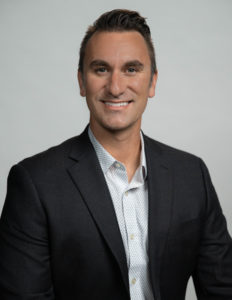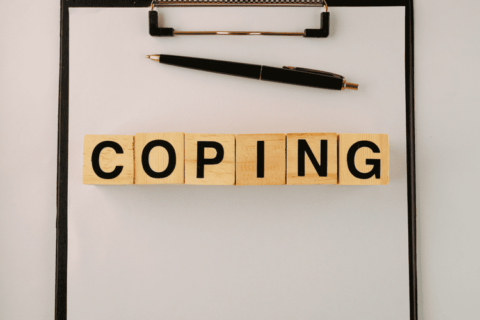Recognizing and Understanding Mental Health Disorders
Our mental well-being and outlook on life can affect just about every aspect of our everyday existence. While many people may have mental health concerns from time to time, these concerns can develop into mental health illnesses when they become ongoing and persistent.
The Mayo Clinic defines mental health illness as disorders that impact our moods, thinking and behavior. Some examples of these illnesses include depression, anxiety disorders, eating disorders, addictive behaviors and schizophrenia.
Left untreated or undiagnosed, these illnesses can cause frequent stress, negatively impact our ability to function, and cause myriad problems in our daily lives such as maintaining healthy relationships with others, our ability to function in the workplace, and academic performance at all levels.
The good news is that many of these mental illnesses can be managed with combinations of medications and therapy with the assistance of a qualified psychologist or psychiatrist.
You may be surprised to find those dealing with mental health concerns and mental health issues are not alone. The National Alliance of Mental Illness estimates that 21 percent of U.S. adults experienced some type of mental illness in the past year or two. For example, during 2020, alone, one in five people in the U.S. were impacted by mental health illness, and their lives were affected physically, socially, and often financially.
And to further illustrate that mental health illness impacts virtually all ages, races, and genders, a deeper dive into mental health statistics provides a broader picture. A brief breakdown of the numbers:
Annual prevalence of mental illness among U.S. adults, by demographic (NAMI):
- Non-Hispanic Asian: 13.9%
- Non-Hispanic White: 22.6%
- Non-Hispanic Black or African-American: 17.3%
- Non-Hispanic American Indian or Alaska Native: 18.7%
- Non-Hispanic mixed/multiracial: 35.8%
- Hispanic or Latino: 18.4%
- Lesbian, Gay or Bisexual: 47.4%
Additional statistics provide a snapshot of the size and scope of mental health disorders in the U.S. adult population. A 2020 snapshot of how many deal with specific mental health illnesses:
- Major depressive episodes: 21 million people.
- Schizophrenia: estimated 1.5 million people.
- Bipolar disorder: estimated 7 million people.
- Anxiety disorders: estimated 48 million people.
- Posttraumatic stress disorders: estimated 9 million people.
- Obsessive Disorders: estimated 3 million people.
- Borderline personality disorders: estimated 3.5 million people.
Perhaps one of the most troubling statistics about mental health illness in the United States is the average delay between the onset of mental illness symptoms and the actual treatment of them. NAMI estimates there is an 11-year gap between when symptoms first occur and when treatment is actually rendered.
Dr. Chad Breznay, Psy.D, Director of Behavioral Health at Brevard Health Alliance, attributes at least part of that gap to the stigma that remains attached to mental health illness.
“Historically mental health was a topic from which most would shy away due to shame and self-judgment,” explains Breznay.
“However, times have changed as we have come to find the dire circumstances that result from internalizing mental health concerns, not just from a psychological perspective but in terms of a person’s physical health as well. We may have chemical or genetic predispositions to a mental illness, but internalization of life stressors leads the illness to manifest or worsen.”
Breznay adds that most people deal with some form of psychological stress and talking to someone has been shown to relieve this stress.
“The best part of counseling is you are talking to someone without direct connection to such stressors and can process objective, realistic solutions with you.”
Breznay notes that mental health concerns can impact all demographics and there are frequently clues that emerge to signal issues may be at hand.
“Mental health concerns can stem at any age, though the onset of chronic mental health concerns are more frequent when a person is in their late teens and early 20s.
“Changes to look for in a person’s daily routines include their sleep or eating habits, socialization, or substance abuse.”
BHA’s mental health practitioner says those in the social circles of individuals who may be experiencing mental health issues may pick up on other clues as well.
“If you notice changes in your friend or family member’s moods or behaviors, its ok to ask them the source of these changes or help them seek assistance.
“Sometimes its not clear if these changes may pose a threat to the safety of the person or others. It is good to seek assistance from a professional to assist in direct assessment.”
Speaking to that 11-year gap between a person experiencing mental health symptoms and actually getting help, Breznay says the earlier the intervention, the better.
“Early intervention with mental health concerns is most beneficial. Not only can it assist in relieving stress, it may also assist in the prevention of additional stressors that may result from symptoms of mental illness.”
He notes that intervention is important for children because mental health and well-being also impacts a child’s normal development.
“In children, early intervention can facilitate appropriate development and reduce difficulties later in life.
“Though treatment cannot prevent life stressors from occurring, early treatment helps you cope with these stressors right away.”
Breznay adds that regardless of what age an individual may experience mental health issues, it’s important to understand intervention can be beneficial.
“It is never to late to seek assistance at any point in this coping process,” he said.



















































































































































